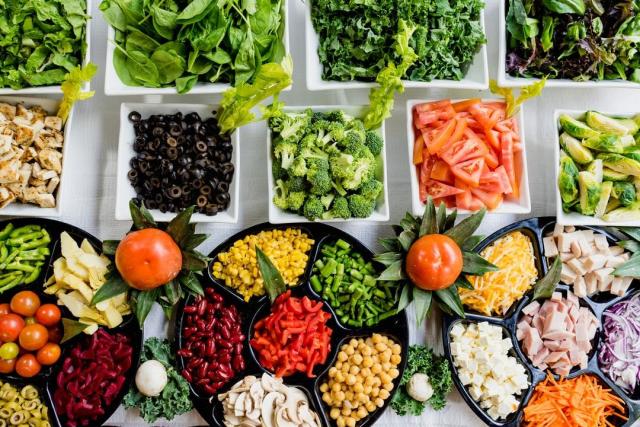Protein is a vital nutrient for proper body function, needed for muscle growth, proper advancement, and general wellness.1.
Lots of professional athletes and TikTokers are taking appreciation for protein in stride, claiming a high-protein diet plan is the crucial to muscle advancement and weight reduction. While protein, in the ideal dosages, can definitely aid with muscle mass and weight management, too much of it has possibly unfavorable side effects.
Because protein fills up the body, it can be tempting to restrict the quantity of carbs, to counterbalance cravings. Carbs are essential in their own right– without proper carbohydrate levels, people can lack fiber.2 As a result, stools don’t bulk up and going to the restroom becomes an issue. It’s not surprising that, then, that irregularity has actually ended up being a common problem from individuals who are checking out high-protein diets.
Protein balance can be difficult while attempting to preserve certain goals for your health. Specialists weigh in on proper protein consumption, as well as ways to consume a high-protein diet plan without experiencing constipation.
How Much Protein Should You Eat Every Day?
The amount of daily protein each person needs varies and largely depends upon your age, gender, total health, and activity level.
In basic, healthy grownups need 0.8 grams of protein per kg of body weight each day.3 For example, somebody who weighs 150 pounds must eat about 54 grams of protein a day. Individuals who work out often will need more protein– around 1.2 to 2 grams of protein per kilogram of body weight, research suggests.4.
Dana Ellis Hunnes, PhD, MPH, RD, a medical dietitian, assistant teacher at UCLA Fielding school of public health, and author of Recipe for Survival, informed Health that the suggested amount of protein for somebody her size is 45 grams a day. Personally, she aims for about 54 grams of protein a day to account for the fact that, as a bicyclist and swimmer, she’s extremely active. Anymore protein than that would put unneeded pressure on her body.

” Extra protein above what we require– anything truly over 1.3 grams per kg a day– just gets excreted, making your kidneys work harder,” Dr. Hunnes discussed.
Can a High-Protein Diet Make You Constipated?
According to Dr. Hunnes, excess protein, which is very satiating, can trigger you to consume less of other crucial foods that assist keep your gut running smoothly. Among the very first things people cut out is carbs.
Without enough carbohydrates (and thus fiber) in your diet, you run the risk of becoming constipated.
” When high protein diets do not allow for enough fiber in the diet plan, for instance with fruits and vegetables, this can result in constipation,” said Neena Mohan, MD, an assistant professor of medical medicine at the Lewis Katz School of Medicine at Temple University and a gastroenterologist at Temple University Hospital.
When you do not take in enough fiber, food waste beings in the bowels, discussed Dr. Hunnes. When that happens, the fecal matter becomes harder, more solid, and, eventually, more difficult to expel.
Research shows that high-protein diets are associated with a higher risk of inflammatory bowel diseases, possibly because the excess protein can modify the variety and structure of the gut microbiota.5.
By consuming too much protein, “we are really doing our microbiome and GI tract a disservice,” Dr. Hunnes noted.
How to Eat More Protein and Avoid Constipation.
All this to say, focusing on protein in your diet plan does not automatically need to cause irregularity. There are a few things you can do to guarantee regular bowel movements and preserve your protein intake.
The initial step is to not overdo it. Simply consuming more protein will not make you more powerful, leaner, or bulkier, discussed Dr. Hunnes. Only routine, vigorous exercise integrated with a well-rounded healthy diet can cause those outcomes. To Dr. Hunnes, the benefits of protein are often oversold and inappropriately marketed on food packaging labels. “Protein is not the panacea everybody wishes it to be,” she said.
Dr. Mohan recommends variety within protein intake– you do not require to simply pack up your plate with more grilled chicken. Seeds, nuts, and low-carb veggies like leafy greens are excellent sources of protein and fiber, too.
Finally, it’s crucial to remain hydrated to avoid irregularity. Both fluids and protein get filtered by the kidneys and “it assists to have sufficient quantities of fluid in the blood so the kidneys do not need to work rather as hard,” Dr. Hunnes kept in mind.
The more fluids you have in your body to water down the protein levels in the blood, the easier it’ll be on the kidneys. Dr. Mohan recommends consuming six to 8 glasses of water a day.
It’s constantly a great concept to consult with a doctor or dietitian if you’re thinking about making a significant modification to your diet plan. While upping your everyday protein consumption can be beneficial for some, doing so can also include a variety of threats and negative effects, constipation being one of them.
Dr. Mohan suggests patients “go over diet plan strategies with your doctor to follow a safe, healthy and healthy diet plan.”.



